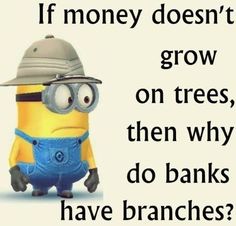
1/30: There’s a supply/demand imbalance in the startup world (too much capital/not enough great companies). This means it’s a great time to be a Founder if you have an epic idea, but how do you know if your idea is any good? I asked some amazing VCs and here’s their advice: 

2/30: Put a prototype in users' hands. When you try to take it away from them, do they kick and scream and tell you to get lost? If so, you've got a good idea. If not, keep iterating. (@Mark_Goldberg)
3/30: Can you can describe it in 30 seconds or less to a tech-illiterate relative at Thanksgiving? Great ideas are simple, but non-obvious. (@Mark_Goldberg)
4/30: Silver bullet > Lead bullets. The value of a single, focused 10x improvement for customers far exceeds the value of a basket of small improvements that might in aggregate be a 10x improvement. And it's far easier to explain (market) to a potential customer! (@illscience)
5/30: Don't worry about market size. TAM is often impossible to predict since many products are focused on potential markets vs existing markets. Focus on insanely over-delivering for a single cust/use case. If you succeed the market will often unfold around you. (@illscience)
6/30: Distribution > Product. Acquisition insights matter as much as product insights given the anti-gravity of paid acquisition (CAC only goes ). The former is usually a much bigger struggle than the latter. (@illscience)
7/30: The best defense is doing something your competitors are economically dis-incentivized to copy! I.e. zero dollar trading (Robinhood), overdraft protection (Dave.com), or human in the loop onboarding (Superhuman). (@illscience)
8/30: A quirk of startups is any time you have a cool idea, there are 5 other companies doing the same thing that you haven't heard of, but VCs may have. Founders should know their competition better than we do and have insights into what will define success. (@iamjakestream)
9/30: “Happens over time”. The same ideas recur over and over. It's impressive when founders know the history of the market and have unique perspectives on what caused companies to fail in the past and what has changed to aid their success. (@iamjakestream)
10/30: There are lots of ways to be an entrepreneur without starting a VC backed start-up. For example, I come from a family of small business owners. Make sure you know what you want. Starting from a place of self-awareness is the best way to begin any journey. (@dkimerling)
11/30: Most start-ups fail. Be so passionate about a problem that you can work on it for a decade without financial gain or regret. I've been working on bank APIs since 2012 and still am obsessed. If you’re that compelled, you're headed in the right direction. (@dkimerling)
12/30: The iron law of start-ups: Build something people want. If people want it, are using it and paying you for it, then keep going. VCs make a lot of type-1 and type-2 errors so follow your customers’ hearts and wallets. That is the ultimate validation. (@dkimerling)
13/30: Whatever you are going to build needs to create absolute value for customers as well as more relative value than any other option in the market. (@wquist)
14/30: Figure out how much was spent last year solving the problem you are solving. Figure out if you need to create a market or if one exists. (@wquist)
15/30: Think through the barrier to competition you are creating or will benefit from. There are only a few proven moats out there. (@wquist)
16/30: Play out the quality of your business. What do you think you can charge your customers? How much cash flow can you generate after accounting for the cost to build it and the cost to sell it? How much cash will you have to invest to get there? (@wquist)
17/30: Summary: If you think you can build something of value for a large market, with a moat, and you can generate a lot more cash than the equity it costs to get there, you probably have something great (@wquist)
18/30: There are two key questions a Founder should be able to answer about the merits and executability of their idea: (1) Why are you the best person to work on this idea? and (2) Why is now the right time for this idea? (@mbatny)
19/30: If you can honestly look yourself in the mirror and believe you have strong answers to those two questions, then your idea may have real merit. (@mbatny)
20/30: Almost every opportunity is still available in Fintech. Look for areas where the incumbents can’t do something (Square w/mobile payments) or won’t (Dave w/overdraft protection). (@ryan_falvey)
21/30: Make sure your vision and initial product are well articulated. Clear concise language > clever marketing. Also, unless you have actual revenues and actual growth, don’t bother with financials. They’re going to be wrong. (@ryan_falvey)
22/30: The single biggest differentiator at the seed stage is speed of execution. Build, learn and test fast. But don’t break any laws - financial regulators have a lot more teeth than taxi regulators ;) (@ryan_falvey)
23/30: What’s the true test to know if you’re startup is a great idea? If customers give you their credit card then you know you are creating value. (@mjmreport)
24/30: Raise prices and if your customers keep coming back then you know you are creating value. Continue this cycle until you see diminishing returns. (@mjmreport)
25/30: I meet a lot of talented founders who are incredibly passionate about their startups, but the ones that truly standout are those who have gone through hardships to get their startup off the ground. This shows me true conviction. (@mjmreport)
26/30: Adding on a few of my own thoughts:
27/30: Be honest about whether you’re trying to solve a real problem or a manufactured problem. The easiest way to build a durable and large business is to create a solution that dulls or eliminates your target customer’s pain. (@fintechjunkie)
28/30: Play out the future like it’s a chess game. Businesses are built in stages so internalize what has to go right over multiple stages to build a sizeable company. If you can’t create a narrative that describes a great business you don’t have an epic idea. (@fintechjunkie)
29/30: Be able to convince yourself and potential investors why incumbents have and will continue to allow the problem you’re tackling to persist. Don’t approach this question with arrogance. Approach it with respect. (@fintechjunkie)
• • •
Missing some Tweet in this thread? You can try to
force a refresh









